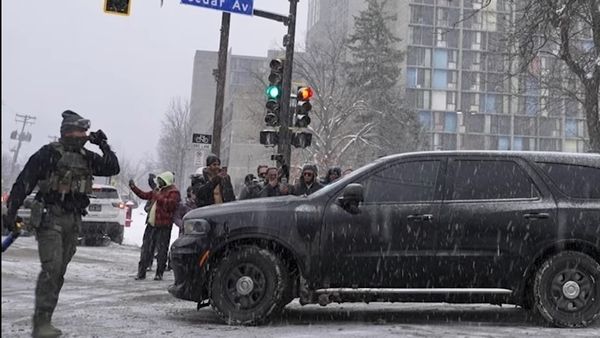
Social media platforms allowing teenagers to brag about crimes might be contributing to an increase in youth offending in Australia’s most populous states, Victorian police and New South Wales’ crime statistics agency say.
In Victoria, data from the Crime Statistics Agency (CSA) released on Thursday reported that home burglaries committed by 10-to-14-year-olds increased by almost 87% in the 12 months to 31 March, compared with the prior year. This is despite youth offending being down by almost half, compared with a decade ago.
The deputy commissioner of regional operations at Victoria police, Rick Nugent, said aggravated burglaries by youth were increasingly aimed at stealing keys of “top-end cars”, as opposed to theft in public places.
“It is the thrill, it is the social media and sometimes people are just caught up with the wrong group,” he said on Thursday.
But he said the majority of young offenders were not seeking a confrontation and simply wanted to sneak into a house to steal a vehicle’s keys.
He acknowledged social media was a contributing factor, with offenders posting videos of themselves speeding in stolen cars to platforms like TikTok.
“It’s quite disturbing, at those speeds with people who have limited experience driving on the roads. There is a huge risk that they’re going to end up in a collision that harms others and harms themselves,” Nugent said.
The executive director of the NSW Bureau of Crime Statistics and Research (Bocsar), Jackie Fitzgerald, said on Thursday that newly released data showing an increase in car theft was partially a “bounce-back” from a Covid-driven decline.
“Another factor, however, may be young people being spurred on by social media posts encouraging vehicle thefts on TikTok,” Fitzgerald said.
Citing media reports, a Bocsar report suggested there was anecdotal evidence of hashtags promoting the stealing of certain vehicle models, while the number of cars stolen in March was higher than in any month since 2017.
“Unfortunately, available social media metrics don’t not allow for the impact of social media on these trends to be definitely measured,” the report said.
Nugent said it was crucial police had good relationships with social media companies to liaise regarding removing content where users boasted about offending.
The Queensland government this year passed new laws that increased penalties for people who boast about crimes on social media as part of a youth crime crackdown. But the changes were criticised by human rights advocates who warned it would be ineffective and will result in more children being incarcerated.
Overall in Victoria, all crimes increased 3.5% on per capita terms in the year ending 31 March. But the prior 12-month period included about 100 days of Covid lockdowns, which contributed to lower offending rates. Victoria’s crime rate is 9.1% below pre-Covid levels, while home burglaries were at their third-lowest level for the past decade.
Victoria police are focusing on youth offending, particularly aggravated burglaries and car thefts. The latest CSA figures showed an almost 45% increase in the number of incidents involving youth offenders aged 10-14.
Nugent said in the past three months the force had arrested 202 people for aggravated burglaries and theft of cars, with about 90% being aged between 13 and 19.
He said police were focused on how to reconnect young offenders with education and their families to divert them from offending. He stressed that 10- and 11-year-olds were less involved in offending.
Earlier this year, the Victorian premier, Daniel Andrews, flagged he would follow the Northern Territory and the ACT to raise the age of criminal responsibility, if a national approach could not be reached. But Indigenous organisations and legal experts condemned the decision, saying it should be raised to 14.
The Andrews government said it would raise the age to 14 by 2027.







